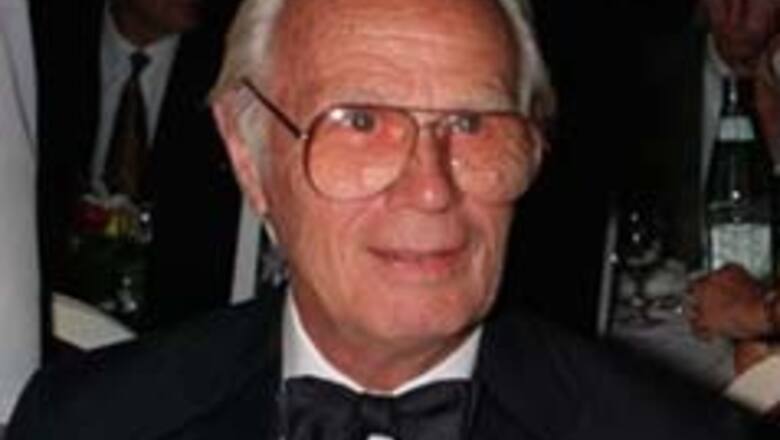
views
Boston: Actor Richard Widmark, who earned an Oscar nomination playing a psychopath in 1947's film noir Kiss of Death, has died aged 93, a medical official in his home state of Connecticut said on Wednesday.
Widmark was blond and slightly built during his prime and brought an edgy nervousness to the outcasts and heavies he played in Hollywood's film noir heyday – a list of roles that The New York Times once described as a "gallery of reprobates."
Widmark's most memorable role may have been his first. As Tommy Udo, he gleefully pushed a wheelchair-bound woman down a flight of stairs in Kiss of Death with a maniacal laugh that made a lasting impression on moviegoers. Widmark would go on to prove he could play a wide range of characters in more than 60 movies, but the Udo role earned him his only Oscar nomination.
"One will remember that nasty little creep with the wild eyes and high-pitched laugh, neurotic to the core, which Richard Widmark has turned into one of his finest roles," Raymond Borde and Etienne Chaumeton wrote in A Panorama of American Film Noir 1941-1953.
'When in doubt, I'd laugh'
Widmark told an interviewer that the laugh was born of nervousness. "When in doubt, I'd laugh," he said.
"And since this was my first picture and the mechanics of picture-making were new to me, I laughed a lot ... And then, too, part of the laugh came from the fact that I've always had a goofy laugh."
"The first time I met (John) Wayne, I had just made the film Kiss of Death," Widmark once said, "And Wayne was standing with a drink in his hand and said, 'Well, here comes that laughing son of a bitch!'"
Widmark's emergence came during what became Hollywood's classic film noir (French for "black film") era in the 1940s and '50s.
The moody black-and-white films typically featured cynical detectives, femmes fatales, criminals and social misfits in seamy circumstances.
"Hoods are good parts because they're always flashy and attract attention," Widmark once said.
Widmark was born in Sunrise, Minnesota, on December 26, 1914, and grew up throughout the Midwest.
PAGE_BREAK
He went to Lake Forest College near Chicago on an athletic-academic scholarship with the intention of becoming a lawyer. But Widmark was drawn to drama and came no closer to a legal career than starring in the play Counsellor-at-Law during his sophomore year and as a US prosecutor years later in the movie Judgment at Nuremberg.
After college, he found work in plays and radio in New York with his career flourishing during World War Two because a perforated eardrum kept him out of the military.
After breaking into Hollywood, he had dark roles in Road House, The Street With No Name, Pickup on South Street and Night and the City.
In the 1950s he branched out from the heavy roles with parts in military and adventure films like The Halls of Montezuma, The Frogmen and Red Skies of Montana.
He also was a fan of Westerns and appeared in Garden of Evil with Gary Cooper, Broken Lance with Spencer Tracy, The Alamo with John Wayne, John Ford's Cheyenne Autumn and How the West Was Won.
Other notable roles included a detective in Madigan. In No Way Out he played a bitter racist but felt so bad about the lines his character spat at Sidney Poitier that he would apologise to Poitier between takes.
Widmark was married to writer Jean Hazelwood from 1942 until her death in 1997.
Their daughter Anne was once married to baseball Hall of Fame pitcher Sandy Koufax. Widmark's second wife, Susan, whom he married in 1999, had once been married to his friend Henry Fonda.

















Comments
0 comment